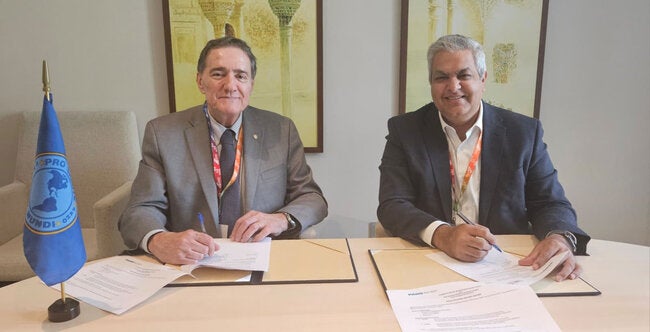
Washington, DC, March 28, 2024 (PAHO) – The Pan American Health Organization (PAHO) today warned about the increase in dengue cases in the Americas. As of March 26, 2024, more than 3.5 million cases and more than 1,000 deaths have been recorded in the region.
“This is a cause for concern, since it represents three times more cases than those reported for this same date in 2023, a record year with more than 4.5 million cases reported in the region,” said PAHO Director Jarbas Barbosa. , during a press conference.
Although dengue is on the rise throughout Latin America and the Caribbean, the most affected countries are Brazil (83%), Paraguay (5.3%) and Argentina (3.7%), which account for 92% of the cases. . and 87% of deaths. This increase is due to the increased transmission season in the southern hemisphere, where the spread of the mosquito Aedes aegypti It is higher due to the hot and rainy weather.
However, Dr. Barbosa warned, “we also see an increase in countries such as Barbados, Costa Rica, Guadeloupe, Guatemala, Martinique and Mexico, where transmission is usually higher in the second half of the year.”
The PAHO Director noted that the presence of the mosquito vector and cases are spreading to new geographic areas, raising concerns that some countries are not prepared to face an increase in transmission.
Several environmental and social factors promote the spread of dengue, including increased temperatures and extreme weather events, in addition to the El Niño phenomenon. Rapid population growth and unplanned urbanization also play a crucial role: precarious housing conditions and insufficient water and sanitation services create breeding sites in discarded objects and others used to accumulate water.
The Organization maintains rigorous surveillance of dengue in the region and has issued nine epidemiological alerts in the last 12 months, providing essential guidance to Member States for the prevention and control of the disease.
The presence of the four dengue serotypes in the region increases the risk of epidemics and severe forms of the disease given the simultaneous circulation of two or more serotypes, something that occurs in 21 countries and territories in the Americas.
Dr. Barbosa stressed the importance of taking actions to prevent and control the transmission of dengue and avoid deaths, highlighting that «despite the record increase in cases in 2023, the dengue fatality rate in the region remained below 0. 05%». This achievement, he noted, «is very talented, considering the spikes in cases seen since then.»
This success has been possible thanks to PAHO’s continued support to countries since 2010, through a comprehensive strategy to control dengue and other mosquito-borne diseases. This strategy includes strengthening surveillance, early diagnosis and timely treatment, which has significantly contributed to saving thousands of lives.
The Director of PAHO issued a call to action: he urged to intensify efforts to eliminate mosquito breeding sites and protect against bites, to prepare health services for early diagnosis and timely clinical management, and to educate the public. population about the symptoms of dengue so that they seek medical attention immediately.
“Tackling dengue is the task of all sectors of society,” said Dr. Barbosa and asked “to involve communities to be successful in our efforts.”






